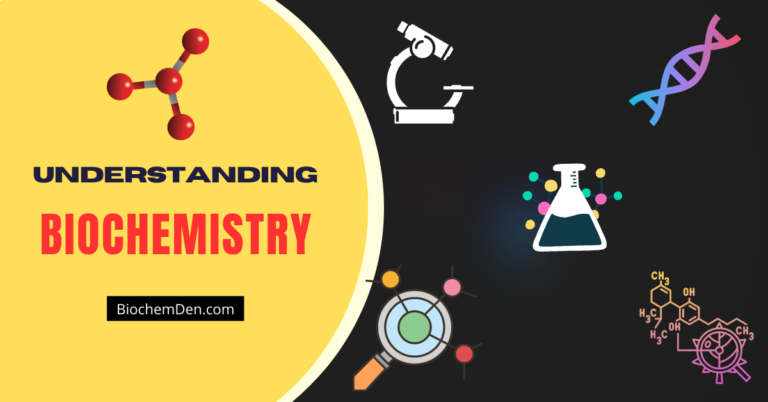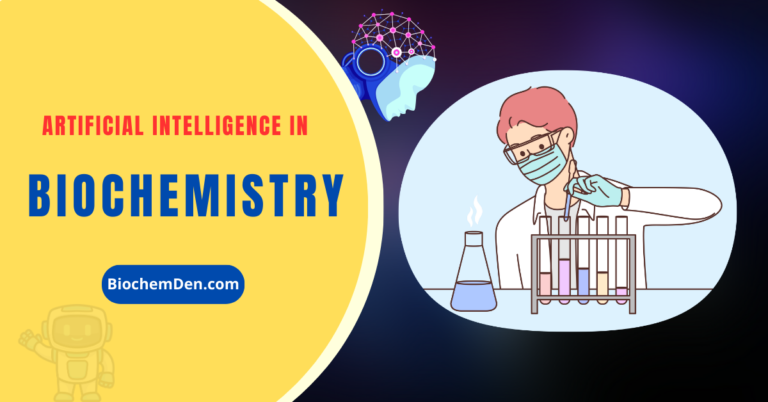Biochemistry is a scientific discipline and the study of chemical reactions in organisms. It is a field of laboratory medicine, including neuropathology, hematopathology, and the microbiology.
Biochemists are specialists who study the origin, nature, reason and the development of human diseases including Molecular biology. In simple terms, Biochemists are scientists trained om Biochemistry.

Basic Biochemist Career
Biochemists prepare and analyze samples, observe and collect data, product development, teach and write about their research.
A large majority of biochemists are hired by private research laboratories, government, universities, hospitals and other medical. They are found in areas such as biotechnology, pharmaceuticals, cosmetics, food, environment, and agriculture.
They work indoors, especially in laboratories. Most work regular hours (forty hours five days), but overtime is often required. This profession is often filled with stress and pressure. Biochemists must provide the data required by their superiors in a very short time.
Professionals in this medium are paid a salary annually. Income biochemists are influenced by the responsibility given the nature of the job and the employer. Incomes range from about $145 to $ 45,000 per year. Biochemists receive medical and dental insurance, vacation, sick leave and paid contributions to their pension plan.
They may be exposed to chemical hazards in their research, however, the risk is reduced by good security measures. When working in the laboratory they wear protective clothing and respirators.
The skills and education that careers require a Biochemist
Courses in biology, chemistry, physics, French, mathematics, computer science, and business administration will be useful to biochemists. To work in the field of biochemistry, a BSc in Biochemistry or a related discipline (such as chemistry, biology or genetics) is required. Baccalaureate programs last about four years.
Research positions require a master’s degree (two years) or a Ph.D. (about four years) while teaching positions at the University require a doctorate. However, we must recognize that employers hire people, not diplomas. Achievements, skills and community work have a great impact on the applications.
Various universities offer programs in biochemistry which often study and practical experience in the laboratory. Cooperative programs allow obtaining direct practical experience during the studies.
The license may be available or even required by field of biochemistry. Persons wishing to become clinical biochemist can obtain their approval of the Canadian Society of Clinical Chemists (CCS).
Biochemists are distinguished by curiosity, deep interest in science, logic, skill, attention regarding the features, toughness and computer skills.
The Employment prospects of Biochemistry (Biochemistry Jobs)
The prospects for this occupation are good. The number of specialists increased significantly during the last decade, given the growth of government priority in the field of health and an inadequate pool of labor. There is demand for biochemists in most developed countries.
Sources of employment come primarily from the need for substitution biochemists retiring. There is very little turnover in this profession. Note, however, that a number of biochemists lead to university or management in the health sector.
Analysis of a Biochemistry career
I thinks it is possible that a career in biochemistry is for me. The employment outlook is good, the pay is good and the hours are common. I prefer to work inside and outside and I am delighted stress and pressure. I love not only biology and chemistry but the data collection and education.
I’m curious, I have a deep interest in science, logic and I have the tenacity required. However, I lack the ingenuity to develop products and patience to analyze samples. I have the skill, knowledge or skills required. Despite this, the programs offered by the universities are promising. If you want to know more details here is the link What is Biochemistry?
Reference: Biochemist Career
Discover more from Biochemistry Den
Subscribe to get the latest posts sent to your email.



